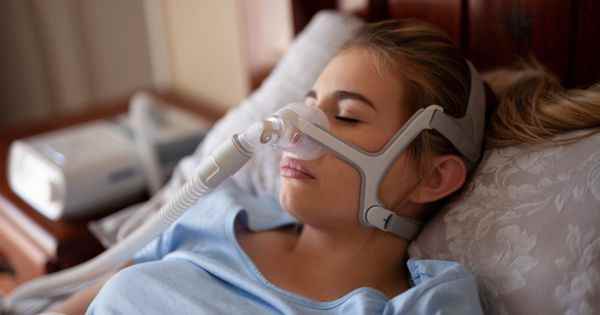Published ,
Reading 2 mins.
The National Agency for the Safety of Medicines and Health Products wants to force Philips to speed up the replacement of defective and potentially “carcinogenic” ventilation devices. It asks the company to trade in all devices by June 2022.
As reported in our article “Can Philips devices against sleep apnea be responsible for cancer?”, Philips ventilation devices are questioned by several users because of their potential harmfulness. The electronics giant had communicated in June 2021 on the subjectexplaining that there was a problem with the foam “polyurethane polyester-based“contained in these devices. But since then, a very small number of machines had been replaced, about 7% of the machines as of February 4.
The ANSM wants to force Philips to replace its defective devices
Indeed, the sound-absorbing foam can deteriorate and “be responsible for cancers because of the chemicals released“. Because of this “potential carcinogenic risk“, the ANSM explains in a communicated want to force the company to speed up the replacement of machines with its users. Also, 75% of defective equipment will have to be changed by June 2022.”The deployment schedule will be frozen” and a monthly report must also be drawn up by the company.
Risk of criminal prosecution
The health authority also announces that a “epidemiological study“will be launched, so”to elucidate the potential risks” generated by the foam present in the devices. Finally, the ANSM criticizes Philips’ management of the crisis in terms of communication and invites the company to “improve it“, while emphasizing that if the company does not comply with these measures, criminal consequences could follow.
Better assess the potential risk of cancer
The ANSM specifies that it will “soon to convene a committee of experts, made up of health professionals, scientists and patient associations, to assess the potential risks, including the potential risk of cancer, linked to the use of these machines and to develop if necessary the behavior to follow“. She also intends to evaluate “the possibility of launching an independent epidemiological study based on data collected by home healthcare providers and data from the National Health Data System (SNDS)“.
Continuation of treatment is essential
Finally, the ANSM recalls that “in consultation with healthcare professionals, patients should continue their treatment“. There is a proven risk in the short term of stopping treatment, for example worsening of respiratory failure. And moreover, “according to the first data available, the risk of cancer linked to the use of these devices is not proven” insists the body, which therefore applies the precautionary principle for the moment.
Remember that Philips ventilation devices are mainly used at home by patients suffering from sleep apnea or requiring respiratory assistance. In France, 370,000 patients are concerned.
